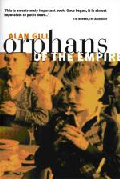
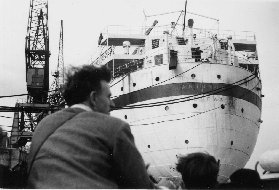
by Flo Hickson
Placed in Barnardo's aged almost five, then sent to Australia two years later without her brother and sister, Flo Hickson's life had a harsh beginning. This autobiography begins by focusing on the regime at her school, Fairbridge Farm School in Pinjarra, Western Australia.
The regime of the school was to fit children for menial tasks and by her mid-teens Flo had started live-in domestic work. However, she eventually battled to make a life for herself. When Flo revisited Fairbridge in 1987, she suffered a crisis and was forced to come to terms with her tough childhood, loss of family and country. This account includes a background chapter about the history of child migrants around the time that Flo became one (1928), a practice that continued until the 1960s.
by David Hill
In 1959 David Hill's mother, a poor single parent living in England, reluctantly decided to send her sons to Fairbridge Farm School in NSW where, she was led to believe, they would have a good education and a better life. David was lucky, his mother was able to follow him out to Australia, but for most children, the reality was shockingly different. From 1938 to 1974 thousands of parents were persuaded to sign over legal guardianship of their children to Fairbridge to solve the problem of child poverty in Britain while populating the colony.
Here, for the first time, is the story of the lives of the Fairbridge children, from the bizarre luxury of the voyage out to Australia to the harsh reality of the first days there; from the crushing daily routine to stolen moments of freedom and the struggle that defined life after leaving the school. This remarkable book is both a tribute to the children who were betrayed by an ideal that went terribly awry and a compelling account of an extraordinary episode in Australian British History. David Hill has been Chairman, then Managing Director of the ABC, Chairman of the Australian Football Association, Chief Executive and Director of the State Rail Authority NSW and Chairman of Sydney Water Coporation and Chairman of CREATE - a national organisation responsible for representing the interests of young people and children in institutional care.
by Alan Gill
The first in what eventually became a trilogy, the book, considered a classic of its kind, tells the shocking yet compelling true story of the several thousand men and women who came to Australia as supposed “orphan” child migrants. From the convict era to recent times it traces the decades of misery in the child migration schemes which seemed “right” at the time, but which came back to haunt the Australian and British Governments and the mainly religious charities charged with their welfare.
Drawing on years of painstaking research and many hours of interviews, Alan Gill has written of the horrific abuse of destitute children in the “care” of their guardians.
He also reveals the deliberate destruction of documents which was to increase the difficulty already faced by the grown “orphans” in trying to find their true identities. Here, too, are accounts of heartwarming acts of great kindness.
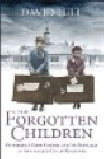
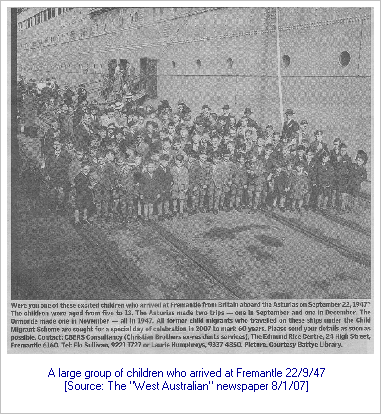
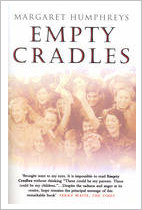
'EMPTY CRADLES'
by Margaret Humphreys
The shocking, moving story of the child migrants betrayed by Britain.
EMPTY CRADLES is a powerful
testament to an ordinary woman's astonishing dedication, compassion and stubborn courage.
In 1986 Margaret Humphreys, a Nottingham
social worker and mother of two, investigated the case of a woman who claimed that, at the age of four, she had been put on a boat
to Australia by the British government. At first incredulous, Margaret Humphreys soon discovered that this woman's story was just
the tip of an enormous iceberg. As many as an estimated 150,000 children had in fact been deported from children's homes in Britian
and shipped off to a 'new life' in distant parts of the Empire - the last as recently as 1967.
Many of the children were told that
their parents were dead. Their parents, too, were often deceived; many believed that their children had been adopted in Britain. The
reality was very different: for numerous children it was to be a life of horrendous physical and sexual abuse in institutions in Western
Australia and elsewhere.
Margaret Humphreys reveals how she gradually unravelled this shocking secret; how she became drawn into the
lives of some of these innocent and unwilling exiles, how it became her mission to reunite them with their families in Britain, and
how her lonely crusade led to the founding of the Child Migrants Trust.
[Source: Random House, Australia]
Both his parents were in fact alive ....."
by Roger Kershaw and Janet Sacks
Over 100,000 'Home Children' were sent across the sea to Canada between 1869 and the late 1930s. Many thousands more were dispatched to Australia – as well as to New Zealand, South Africa and Rhodesia – up to and even after the Second World War. These young migrants came from charitable organizations or children’s homes, and were sent to find a better life as agricultural workers and servants, mechanics and skilled artisans. They were the ‘superfluous thousands’ of Britain’s cities, including workhouse paupers, reformatory inmates, children from industrial schools and those rescued from slums and the streets. Ranging from five- and six-year-olds to teenagers, all were thrust into an alien world from which there was little chance of return.
'New Lives for Old' tells the story of this controversial practice, from the accounts of those involved and the authentic records of the time. It traces the people behind the migrations, from Dr Barnardo to Annie Macpherson, Louisa Birt to Maria Rye, exploring their beliefs and aspirations for the children in their care. It considers the roles that different organizations played (including The Children’s Society, Dr Barnardo’s Homes, Middlemore Homes, National Children’s Homes and the Catholic Nugent Society Care Homes), as well as the shipping lines that carried the children from Liverpool, Glasgow and other ports and the centres that received them overseas.
Most importantly, it describes the experiences of the children themselves. Clear-sighted and objective, this is a gripping tale of the good, the bad and the ugly based on original documents from the National Archives and other sources. Above all, it celebrates those who welcomed the migrants and the children who managed, against all the odds, to adapt to their new lives.
Review:
'Kershaw and Sacks take an even hand preferring to let the official documents and the memories of the children themselves speak' - Ancestors magazine.
